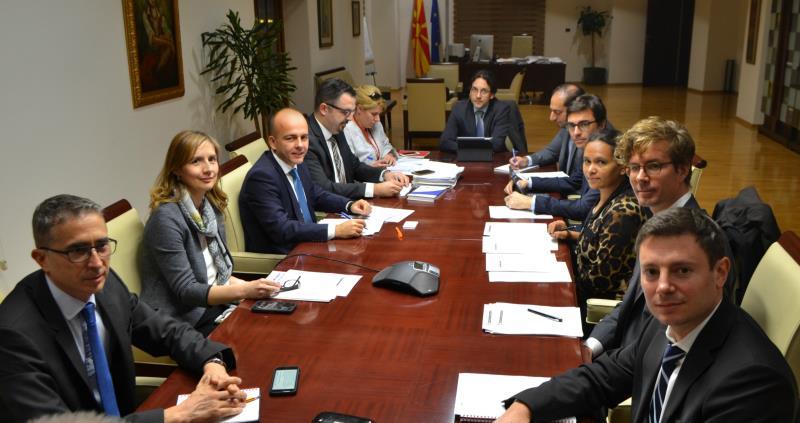Anita Angelovska Bezhoska, Governor of the National Bank of the Republic of Macedonia and a team of the Ministry of Finance led by the minister Dragan Tevdovski attended the wrap-up meeting with the International Monetary Fund (IMF) staff who visited the country in order to carry out the regular annual review of the Macedonian economy.
The IMF staff concluding statement describes the monetary policy as appropriately accommodative. Against a background of moderate economic activity, low inflation and favorable exchange markets, the NBRM lowered its policy rate twice in 2018. According to the IMF staff, going forward, should the external environment worsen, the NBRM should stand ready to tighten monetary policy as was appropriately done in the past.

The IMF staff assesses that the banking system remains healthy, but risks need to be closely monitored. As described in the concluding statement, banks are well capitalized, liquid and profitable. The share of non-performing loans has decreased and credit risks are well provisioned. Further efforts to gradually increase deposit denarization and carefully calibrated macro-prudential measures to reduce foreign currency lending to households would help strengthen financial system resilience.
The Financial Sector Assessment Program (FSAP) currently being finalized by the IMF and the World Bank assessed that banking supervision and regulations have been enhanced considerably over the past decade, but found scope for further improvement – particularly intensification of supervision of systemically important banks and macroprudential policy framework and modernization of crisis management.
The IMF staff concluding statement notes that the return of political stability and progress towards resolving the name dispute have tangibly raised prospects for opening European Union accession negotiations more than twelve years after gaining the candidate status. Structural reforms to address longstanding weaknesses in the labor market, judiciary, and public administration are critical to seize this opportunity and ensure a brighter future through higher productivity and faster income convergence.
Real GDP is projected to grow at 2% in 2018, supported by favorable macroeconomic conditions, i.e. low headline inflation, a declining current account deficit, and positive trends in the foreign exchange market. As investment recovers, real GDP growth is projected to pick up to 2.8% in 2019, and gradually approach 3.5% over the medium term, driven by infrastructure investment and strong exports.
The full text of the Staff Concluding Statement of the Article IV Mission can be found here.